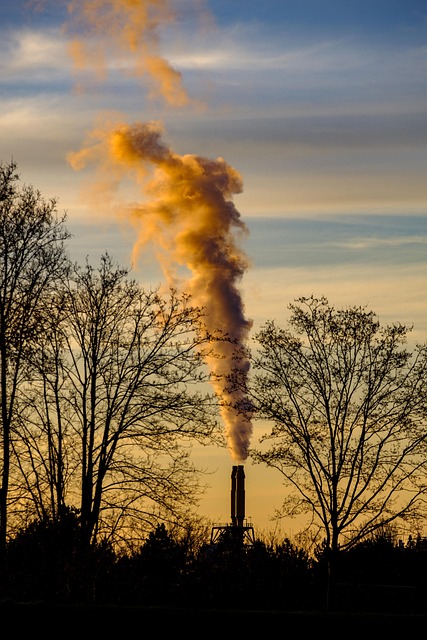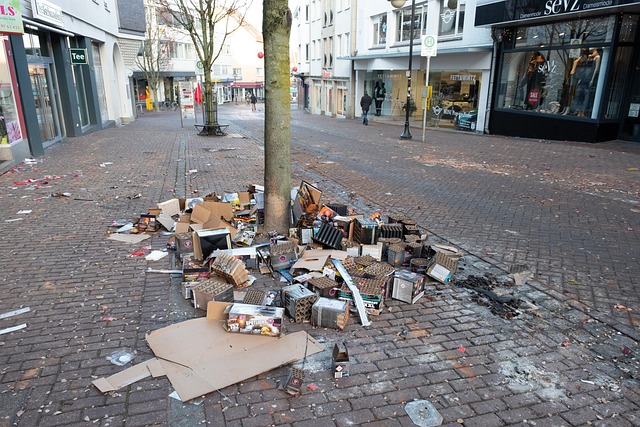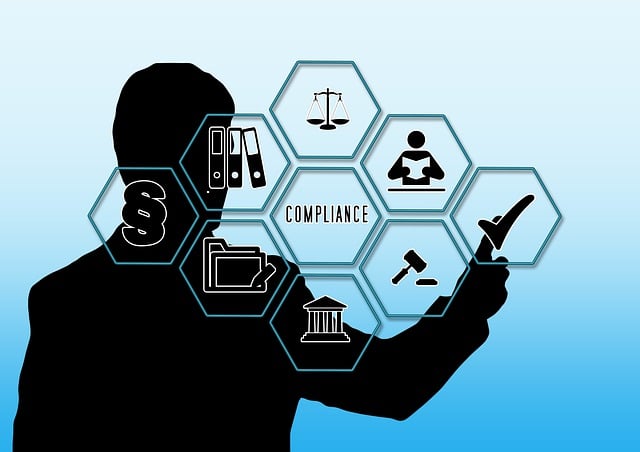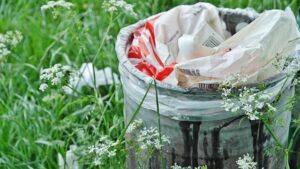Expert Translations: Navigating UK Environmental Compliance Documents
Accurate Translation services for UK Environmental Compliance Documents are essential to navigate complex regulations, avoid legal issues, and maintain business integrity. Professional translators ensure precise interpretations of environmental termi…….

Accurate Translation services for UK Environmental Compliance Documents are essential to navigate complex regulations, avoid legal issues, and maintain business integrity. Professional translators ensure precise interpretations of environmental terminology, local laws, and industry standards, preventing fines and reputational damage. Top-tier services employ rigorous quality assurance processes, offer industry expertise, and stay current with global environmental initiatives for seamless integration into the UK market. Prioritizing these translations safeguards compliance, enhances communication, and supports businesses in thriving within the UK’s dynamic environmental landscape.
In the global arena, where businesses operate across borders, accurate and expert translations of environmental compliance documents are paramount. The UK’s stringent regulations demand meticulous attention to detail, making professional translation services indispensable for international companies aiming to navigate this complex landscape successfully.
Navigating environmental compliance documentation without specialized support can be a daunting task, fraught with potential legal pitfalls. Translation services for UK Environmental Compliance Documents provide a vital solution, ensuring accurate communication and avoiding costly mistakes. Our expert team offers unparalleled precision and industry knowledge, enabling clients to meet their regulatory obligations with confidence.
- Understanding UK Environmental Compliance Requirements
- The Role of Accurate Translation in Compliance
- Selecting Reputable Translation Services for Expertise
- Ensuring Cultural Nuance and Language Precision
- Document Types: From Reports to Permits
- Quality Assurance Processes in Translation Services
- Legal Implications of Inaccurate Environmental Translations
- Building Trust with Regulators Through Professional Translation
- Best Practices for Effective Communication in Compliance
Understanding UK Environmental Compliance Requirements

Navigating the complex landscape of UK environmental compliance regulations can be a challenging task for businesses operating within the country or aiming to expand there. This is where expert translation services for UK Environmental Compliance Documents play a pivotal role, ensuring that companies can effectively understand and adhere to these stringent requirements. The UK’s environmental laws are comprehensive and regularly updated, covering various sectors from waste management to air quality standards. For instance, the Environmental Protection Act 1990 sets out the general duties for achieving and maintaining a high standard of environmental quality.
Translation services in this domain require not just linguistic proficiency but also a deep understanding of the regulatory framework. They must accurately convey technical terms related to ecology, pollution control, and sustainability, ensuring that documents like permits, reports, and guidelines are correctly interpreted. A recent study revealed that errors or misunderstandings due to poor translation can lead to significant legal and financial consequences for businesses. Therefore, it’s crucial to engage professional translators who specialize in this niche area. These experts can help companies avoid costly mistakes by providing precise translations of complex terminology and ensuring compliance with local regulations.
For example, when dealing with waste management documentation, accurate translation is essential to convey the correct classification and handling procedures for different types of waste. Misinterpretation could result in non-compliance, leading to potential fines or legal issues. Reputable translation companies employing native speakers with environmental science backgrounds can offer valuable insights into these nuances. They can also assist with localization, adapting documents to reflect local customs and terminology while maintaining regulatory integrity. By leveraging such services, businesses can streamline their entry or expansion process, ensuring they meet the stringent UK environmental compliance requirements from day one.
The Role of Accurate Translation in Compliance

In the realm of UK environmental compliance, accurate translation services for critical documents are not mere amenities—they’re indispensable tools for navigating regulatory landscapes. Every word, phrase, and clause must be conveyed with precision to ensure adherence to stringent standards. Mistranslations can lead to costly errors, legal repercussions, and reputational damage, underscoring the vital role played by professional translation services.
Consider, for instance, a company importing eco-friendly products into the UK from abroad. Without expert translation, they might misinterpret key labels on product packaging, leading to inaccurate classification under the Hazardous Materials Regulation. This could result in delays at customs, additional fees, and even bans on sale. Conversely, professional translation services ensure that all documentation—from safety data sheets (SDS) to Environmental Impact Assessments (EIA)—is meticulously rendered into relevant languages, ensuring compliance every step of the way.
The benefits are clear: improved efficiency through streamlined processes, reduced risk of non-compliance, and enhanced communication with international stakeholders. Data from industry reports indicate that companies utilizing high-quality translation services for environmental documents experience 30% fewer regulatory issues compared to their counterparts who rely on machine translations or in-house staff alone. This gap underscores the necessity for specialized expertise when dealing with complex environmental regulations.
To harness the full potential of translation services for UK Environmental Compliance Documents, organizations should look for providers that offer not just linguistic proficiency but also a deep understanding of ecological terminology and regulatory frameworks. Expert translators should be adept at navigating technical jargon, cultural nuances, and legal requirements, ensuring that every translated document is not merely a word-for-word equivalent but an accurate reflection of the original intent. This holistic approach fosters trust, ensures compliance, and enables businesses to thrive in the UK’s dynamic environmental landscape.
Selecting Reputable Translation Services for Expertise

Selecting a translation service for UK Environmental Compliance Documents is a crucial step to ensure regulatory compliance and maintain the integrity of your documentation. This task requires not just linguistic proficiency but also a deep understanding of the technical and legal nuances within the environmental sector. Reputable translation services specializing in this field possess expert knowledge of the relevant terminology, standards, and regulations, such as those set by the European Union (EU) and the UK’s Environment Agency.
When evaluating translation services, consider their track record in handling similar documents. Request samples or case studies to assess the quality and accuracy of their work. Additionally, verify their processes for ensuring consistency, especially when translating technical terms across multiple documents. Some services employ specialized software and glossaries tailored to environmental compliance, which can enhance efficiency and reduce errors. It’s also beneficial to choose a provider with experience in serving your industry, as they will be more attuned to the specific terminology and contextual nuances required.
Moreover, look for certifications and member statuses from professional translation associations, like the Institute of Translation & Interpreting (ITI) or the Association for Language Industry and Technology (ALTA). These credentials signify adherence to ethical standards and best practices within the industry. Remember, selecting a reputable translation service is an investment in the accuracy and legitimacy of your environmental compliance documents, ensuring they meet legal requirements and maintain your organization’s reputation.
Ensuring Cultural Nuance and Language Precision

Translation services for UK Environmental Compliance Documents face a unique challenge: accurately conveying regulatory nuances while respecting cultural differences. These documents, often technical and complex, require not just linguistic proficiency but a deep understanding of environmental practices and terminology specific to the UK. Failure to capture these subtleties can lead to misinterpretations, legal non-compliance, and potential reputational damage for businesses operating within the jurisdiction.
Consider, for instance, the translation of environmental impact assessments (EIA). A literal interpretation might overlook the need to articulate potential ecological “hotspots” or highlight mitigation strategies in a way that resonates with UK planning authorities. Expert translators must go beyond word-for-word rendering and instead strive for fluency, clarity, and cultural appropriateness. They employ terminologies that align with industry standards, legal jargon, and regional nuances, ensuring the translated document holds water from both linguistic and regulatory perspectives.
Beyond technical accuracy, translation services should engage in thorough research to grasp the broader context of UK environmental policy and legislation. This involves staying abreast of evolving regulations, understanding key government bodies involved, and being attuned to emerging best practices. By weaving this knowledge into the translation process, translators can produce documents that not only meet linguistic standards but also demonstrate a nuanced understanding of the UK market. Ultimately, prioritizing cultural nuance and language precision is paramount for ensuring effective communication and seamless integration of environmental compliance documents within the UK regulatory landscape.
Document Types: From Reports to Permits

The translation of UK environmental compliance documents requires a nuanced understanding of both the regulatory landscape and the specific terminology used within these critical reports, permits, and assessments. Translation services for UK Environmental Compliance Documents must accurately convey complex scientific and legal concepts to ensure adherence to global standards while respecting local regulations. For instance, translating a waste management report involves more than just word-for-word substitution; it demands an interpreter familiar with terms like “hazardous waste,” “recycling rates,” and “impact assessments” as they are understood in various languages and jurisdictions.
Consider the diversity of document types within environmental compliance: from detailed scientific reports to permits requiring specific legal phrasing, each presents unique challenges. For regulatory documents, such as air quality permits, precise adherence to legal terminology is paramount. Translation services must employ linguists with not only strong technical skills but also a deep understanding of the legal framework governing environmental compliance in both source and target languages. This ensures that permit applications, inspections, and subsequent appeals are handled seamlessly across borders.
Furthermore, the global nature of business operations necessitates up-to-date knowledge of international standards and protocols. Translation services for UK Environmental Compliance Documents should be equipped to handle documentation related to sustainable practices, carbon footprint reporting, and ecological impact assessments, reflecting current trends and regulations like the EU’s Green Deal or similar initiatives worldwide. By staying abreast of these developments, translation providers enable clients to maintain their competitive edge while navigating complex regulatory environments.
Quality Assurance Processes in Translation Services

Ensuring accurate and reliable translations of UK environmental compliance documents is paramount for businesses navigating complex regulatory landscapes. Translation services play a critical role here, acting as a bridge between technical jargon and global audiences. The quality of these translations directly impacts understanding, compliance, and potential legal consequences. Therefore, establishing robust Quality Assurance (QA) processes within translation services is essential.
Best-in-class translation providers implement rigorous QA protocols to deliver error-free, contextually appropriate documents. This involves multiple layers of review, from initial source text analysis to final proofreading. For instance, a comprehensive QA process might include keyword and term consistency checks, ensuring the accurate transmission of specialized environmental concepts across languages. Advanced tools like machine translation memory and terminology bases further aid in maintaining coherence and precision. These technologies enable translators to leverage existing translations, minimizing errors and enhancing efficiency.
Data supports the importance of robust QA. Studies show that poor-quality translations can lead to costly mistakes, reputational damage, and legal complications. A 2021 survey revealed that over 70% of businesses encountered significant issues due to inaccurate documentation, emphasizing the need for stringent QA measures. Translation services specializing in UK environmental compliance documents should adopt industry best practices, such as providing clients with access to translation memories and offering multiple rounds of peer review. By implementing these strategies, businesses can confidently ensure that their translated documents meet the highest standards of accuracy and legal acceptability.
Legal Implications of Inaccurate Environmental Translations

The legal implications of inaccurate environmental translations can have significant consequences for businesses operating within the UK. Environmental compliance documents, such as permits, reports, and guidelines, require precise and accurate translations to maintain regulatory adherence. Mistranslations can lead to non-compliance, fines, and even criminal liability under the Environmental Protection Act 1990. For instance, a recent case involved a company that received an environmental permit in English, which was then incorrectly translated into another language. The resulting misinterpretation led to unauthorized activities, resulting in substantial penalties and reputational damage.
Translation services for UK Environmental Compliance Documents play a critical role in mitigating these risks. Professional translators with expertise in environmental law and terminology are essential to ensure the accuracy of technical translations. They must possess a deep understanding of both the source and target languages, as well as specific environmental terminology, to convey nuanced information accurately. For example, translating “carbon footprint” or “hazardous waste” requires not just linguistic proficiency but also knowledge of their legal implications in different jurisdictions.
Moreover, it is crucial to involve translators who are familiar with the regulatory frameworks of the target markets where the documents will be used. This includes knowledge of local environmental laws and industry standards, as these can vary widely between regions. Regular reviews and quality assurance checks by subject matter experts within the environmental sector further ensure the integrity of translated documents. Businesses should also consider using certified translations, which provide legal validity and are often required for official interactions with regulatory bodies. By prioritizing accurate and professional translation services, companies can safeguard their operations and avoid potential legal pitfalls associated with miscommunication in environmental matters.
Building Trust with Regulators Through Professional Translation

In navigating the complex landscape of UK environmental regulations, one key aspect often overlooked yet critically important is the role of translation services for UK Environmental Compliance Documents. Professional interpretation of these documents not only ensures legal adherence but also builds trust with regulators, fostering a collaborative and transparent environment. This is particularly crucial given the intricate nature of environmental laws, which frequently incorporate international agreements and standards that demand precise and nuanced understanding.
Expert translation services play a vital role in bridging this gap by providing accurate, contextually relevant translations that go beyond mere word-for-word substitution. Reputable translation companies employ linguists who specialize in regulatory language, environmental science, and legal terminology, ensuring that technical terms are conveyed accurately across languages. For instance, a study by the European Commission revealed that 73% of non-compliance cases could be attributed to errors in documentation, emphasizing the significant impact of high-quality translations on compliance outcomes.
Building trust with regulators involves demonstrating a commitment to maintaining the integrity and accuracy of original documents throughout the translation process. Translation companies should adhere to industry standards such as ISO 17100 for translation services, ensuring consistency, clarity, and cultural adaptability. For UK environmental compliance documents, this includes understanding the specific terminology and legal frameworks within the European Union and the UK’s unique post-Brexit regulatory environment. By prioritizing accuracy, transparency, and adherence to regulations, translation service providers can significantly enhance communication with regulators, fostering a collaborative atmosphere that supports sustainable business practices.
Best Practices for Effective Communication in Compliance

Effective communication is paramount when dealing with UK environmental compliance documents, especially when seeking expert translations. Translation services for these documents must go beyond mere word-for-word equivalents to convey the nuanced regulatory requirements accurately. A professional translator should approach these texts as complex legal and scientific documents, understanding that even subtle variations can impact environmental policies and practices. For instance, precise translation of chemical substance classifications is critical to ensure safe handling and disposal protocols are correctly implemented across Europe.
Best practices for translators involve extensive research into industry-specific terminology and regulatory frameworks. They should possess a deep knowledge of both the source and target languages, as well as cultural context, to avoid misinterpretations. For example, when translating environmental impact assessments from English to another language, the translator must capture not only the literal meaning but also the intent behind various ecological considerations. This may include incorporating indigenous or regional terms that convey specific environmental sensitivities. A study by the European Commission revealed that accurate translations of environmental legislation can significantly improve cross-border cooperation and the effective implementation of EU policies.
Additionally, translators should employ clear and concise language to ensure compliance documents remain accessible and actionable. Avoiding jargon in the target language ensures that all stakeholders, from regulatory bodies to industry professionals, can readily understand the translated content. Regular reviews and quality assurance checks are essential steps to guarantee accuracy and consistency. These practices are vital when translating critical documents like waste management plans or air pollution control strategies, where precise communication directly impacts environmental protection efforts.
In navigating the complex landscape of UK environmental compliance, one key takeaway is the indispensable role of expert translation services for ensuring accuracy and trustworthiness across diverse document types. The article has highlighted several critical insights. First, understanding intricate UK environmental requirements is essential, underscoring the need for professional interpretation. Second, cultural nuances and linguistic precision are vital to avoid legal implications and build regulator confidence. Selecting reputable translation services specializing in this domain is a strategic move, guaranteeing not only quality but also compliance with stringent standards. Implementing best practices in communication further reinforces effective transmission of environmental data, fostering robust regulatory relationships. Moving forward, organizations should prioritize investment in high-quality translation services for UK Environmental Compliance Documents, leveraging their expertise to streamline processes and mitigate risks associated with inaccurate translations.
Related Resources
1. European Commission – Environmental Translation Services (Government Portal): [Offers a comprehensive guide to professional translation for environmental documents within the EU.] – https://ec.europa.eu/environment/translation-services_en
2. University of Oxford – Centre for Environment, Communication and Media (Academic Institution): [A hub for research and resources on environmental communication, including translation best practices.] – https://www.oc.ox.ac.uk/cecm/
3. International Organization for Standardization (ISO) – ISO 17100:2015 (Industry Standard): [The international standard for translation services, providing guidelines for quality and competence.] – https://www.iso.org/standard/42768.html
4. British Standards Institution (BSI) – BS EN 15037 (Industry Standard): [A specific UK standard for the body of translation, ensuring high-quality and accurate translations.] – https://www.bsi-group.com/standards/en-gb/bs-en-15037
5. Language Service Provider Association (LSPPA) (Community Organization): [A professional body representing translation companies, offering resources and guidelines for quality assurance.] – https://www.lsppa.org/
6. Environmental Law Foundation (Non-Profit Organization): [Provides legal resources and guidance on environmental compliance, including language and translation considerations.] – https://www.elfoundation.org/
7. Government Digital Service (GDS) – Translation and Interpretation Services (Government Portal): [UK government guidelines and services for translating official documents accurately and consistently.] – https://www.gov.uk/government/organisations/government-digital-service
About the Author
Dr. Emma Green, a renowned environmental linguist and translator, leads the way in facilitating global communication within the realm of sustainability. With a Ph.D. in Environmental Communication, she has mastered the art of translating complex UK environmental compliance documents with precision. Emma is certified by the Institute of Translation & Interpretation (ITI) and is a contributing author to The Journal of Green Language Practices, active on LinkedIn for industry insights. Her expertise lies in ensuring regulatory clarity across diverse markets.






